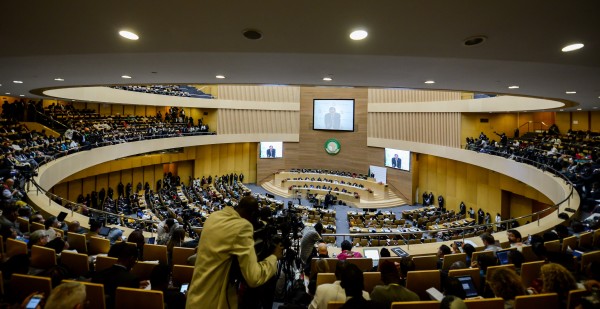

Follow us on:  
|


The African Union is to choose Dlamini-Zuma’s successor as well as decide on Morocco’s readmission into the organization [Xinhua]
Dlamini-Zuma said during her opening speech at the 28th AU summit in Addis Ababa that Ethiopia, DR Congo, Cote d’Ivoire, Mozambique, Tanzania, and Rwanda are amongst the fastest-growing economies in the world
But Dlamini-Zuma also took time to weigh in on the executive order signed by US President Donald Trump to ban visitors and immigrants from seven predominantly Muslim countries.
Three of those countries – Somalia, Sudan and Libya – are also part of the African Union.
She said the ban presented itself as a test to the AU as the world entered “very turbulent times”.
“For example, the very country to whom our people were taken as slaves during the transatlantic slave trade, has now decided to ban refugees from some of our countries,” Dlamini-Zuma said.
Dlamini-Zuma, the first woman to head the AU, is due to stand down after the summit. There are deep divisions over who will succeed her, but leading candidates include Kenyan Foreign Minister Amina Mohammed and Senegal’s Abdoulaye Bathily.
United Nations Secretary-General António Guterres also attended the opening ceremony of the AU Summit.
“African nations are also among the world’s largest and most generous hosts of refugees. African borders remain open for those in need of protection, when so many borders are being closed, even in the most developed countries in the world,” he said in open criticism of countries which have restricted the arrival of refugees.
Meanwhile, one of the pressing issues on the agenda is whether to re-admit Morocco, which left the organization some 30 years ago over the Western Sahara crisis, back into the AU’s fold.
The BRICS Post with inputs from Agencies